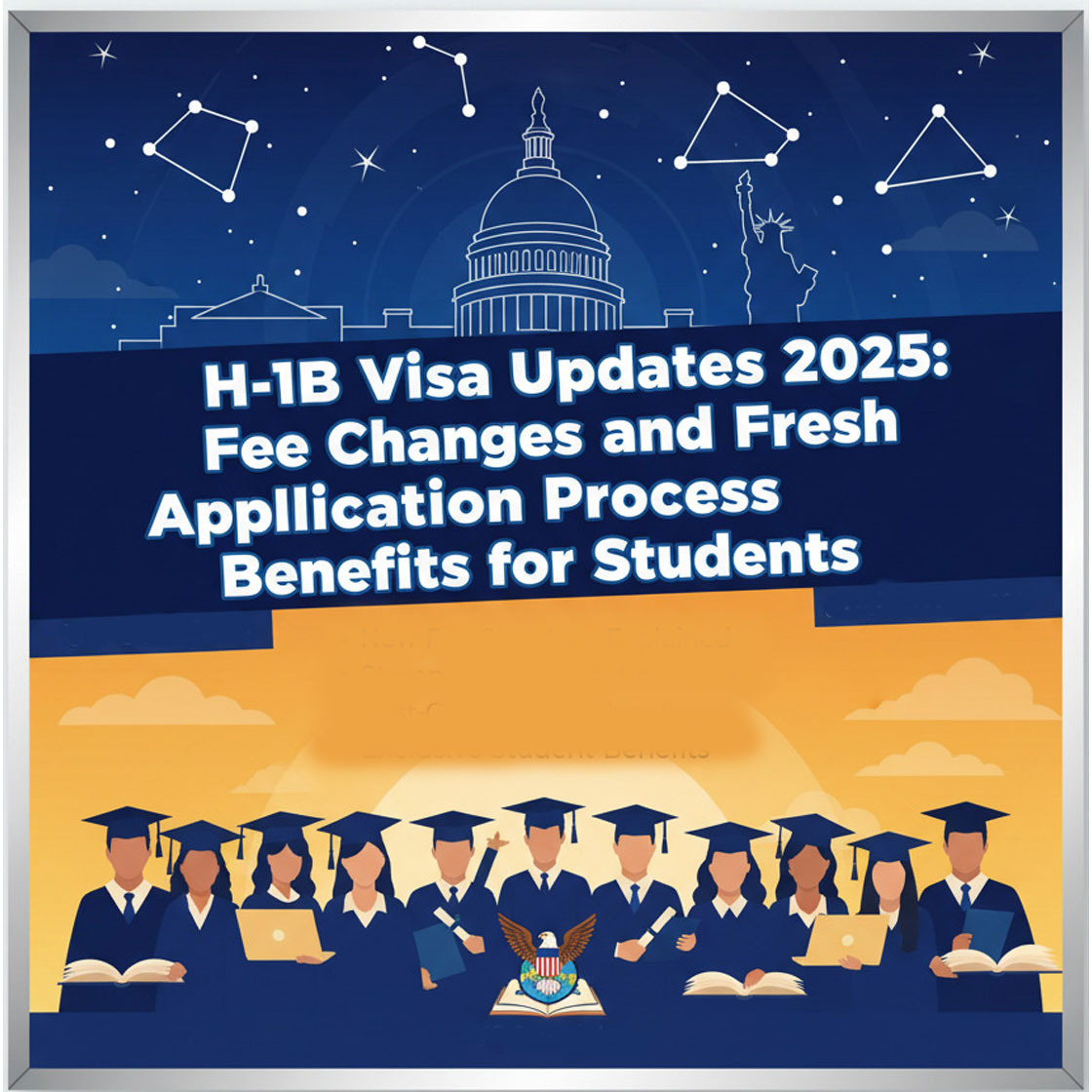
H-1B Visa Updates: New Fee & Fresh Applications Explained
The H1B visa continues to be one of the most important work visas in the United States, especially for international students who begin on an F1 visa. Every year, thousands of students finishing their studies or completing OPT look to the H1B as their next step toward a stable career in the U.S. With recent updates in fees and requirements, staying informed is crucial.
What is the H1B Visa?
The H1B visa is a non-immigrant work visa that allows U.S. employers to hire foreign professionals in specialty occupations. These jobs usually require highly skilled workers with at least a bachelor’s degree in fields like IT, engineering, finance, healthcare, and more. One key advantage is that the H1B is a dual intent visa, meaning holders can work in the U.S. while also applying for permanent residency if eligible.
Who Gets H1B Visas?
H1B visas are typically granted to highly skilled professionals. International students on F1 visas often pursue the H1B after completing their degrees and gaining some experience through OPT or CPT. U.S. companies that face talent shortages—particularly in technology and research—are the primary sponsors of H1B workers. The demand for these visas is so high that USCIS uses a lottery system to select petitions each year.
Updated H1B Visa Fee
The U.S. Citizenship and Immigration Services (USCIS) recently increased H1B filing costs. The electronic registration fee for the lottery is still $10, but the total cost can be much higher after selection. The base filing fee is now $780, plus the training fee ($750–$1,500) and the fraud prevention fee ($500). In certain cases, large employers must also pay a $4,000 surcharge. Some petitions involving compliance or legal disputes can push costs even higher, with estimates suggesting that overall expenses, including legal fees, can exceed $100,000 for companies sponsoring multiple employees.
Why It Benefits F1 Students
For students on an F1 visa, the H1B offers a secure transition from studying to working. After finishing OPT or STEM OPT, many graduates depend on H1B sponsorship to continue their careers in the U.S. Some of the biggest advantages include:
- Full-Time Work Permission: Graduates can move into permanent, full-time roles.
- Dual Intent: H1B holders can apply for permanent residency while working.
- Career Stability: The visa is valid for three years and can be extended to six years.
- Global Opportunities: It allows access to some of the best jobs in U.S. industries.
For many students, this visa is the bridge between short-term student work authorization and long-term career goals.
Key H1B Requirements
To qualify for the H1B, applicants need:
- A Job Offer: From a U.S. employer willing to sponsor.
- A Specialty Occupation: The role must require at least a bachelor’s degree.
- Educational Credentials: A U.S. degree or equivalent foreign degree.
- Employer Sponsorship: The employer files the petition.
- Lottery Selection: Since visas are capped at 65,000 (plus 20,000 for U.S. master’s graduates), applicants must be chosen in the lottery.
FAQs About H1B for Students
Q1: Can F1 students apply directly for an H1B?
No. Students need an employer to sponsor their petition.
Q2: When should F1 students apply for H1B?
Most apply during or after OPT. The lottery takes place in March, and approved visas begin on October 1st.
Q3: How long does processing take?
Regular processing can take 3–6 months, while premium processing shortens it to about 15 days.
Q4: What if I am not selected in the lottery?
You can continue on OPT or STEM OPT if eligible and reapply the next year. Some choose further study to maintain their status.
Q5: Can H1B holders apply for a Green Card?
Yes. H1B status supports dual intent, so many employers start the Green Card process for employees.
Q6: When do I need to renew my H1B visa?
The initial H1B visa is valid for three years. Before it expires, your employer can file for an extension of up to another three years, making the maximum standard period six years. Renewal paperwork is usually filed several months before the expiration date to avoid gaps in work authorization.
The latest H1B visa updates show that while fees have increased—sometimes significantly when legal and compliance costs are included—the long-term benefits make it one of the most valuable visas for international graduates. For F1 students, it provides not only work authorization but also a clear pathway toward career growth and permanent residency in the U.S.
